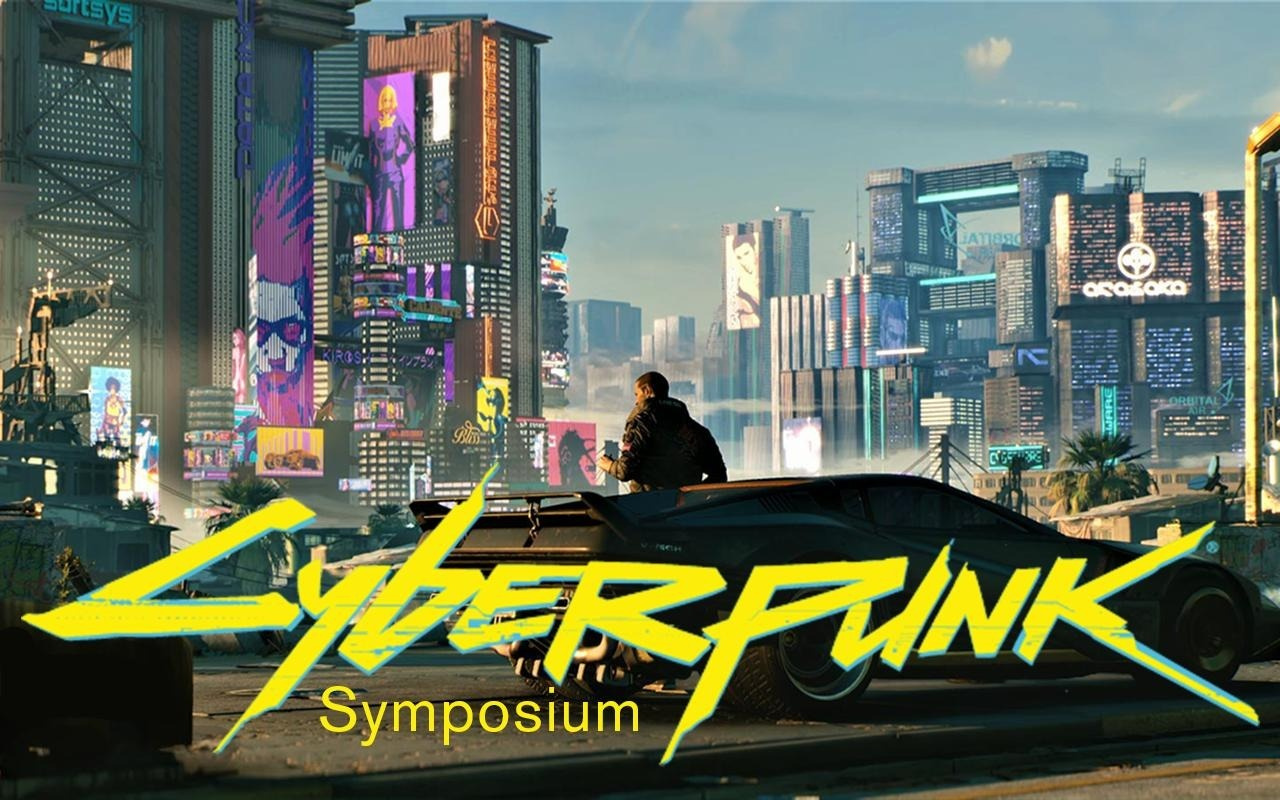- Event
- Symposium
The Cyberpunk Experience
Symposium
Thu, June 02, 2022 10:00 am – 6:00 pm CEST
- Location
- Media Theater
- Language
- German
»Neuromancer«, »Blade Runner», »Matrix» – at the end of 2020, cyberpunk experienced a powerful revival with the release of the computer game of the same name. As a cultural discourse, cyberpunk stands for aestheticized retrofuturism, post-apocalyptic visions of society, and anthropological dissolution of boundaries. The symposium will focus on the question of why this discourse has struck a nerve once again and in the midst of a global pandemic.
The term "cyberpunk" first appeared in 1980 in a short story by Bruce Bethke. As a cultural phenomenon, cyberpunk was fleshed out and popularized primarily by films such as Ridley Scott's 1982 »Blade Runner«, Katsuhiro Otomo's 1982 cult manga »Akira«, and William Gibson's 1984 novel »Neuromancer«. At the center are mostly post-apocalyptic dystopias characterized by mega-metropolises and corporations, in which physically and mentally optimized people struggle for self-determination and survival at the interface with cyberspace. As the subject of artistic counterworlds, cyberpunk is still present today in various forms.
With the release of the computer game »Cyberpunk 2077« at the end of 2020, the phenomenon has once again experienced a renaissance of global proportions: on the one hand, it was the most hyped game of all time, sold millions of copies and used by the largest simultaneously active community of players, allowing deep immersion and experience of the world of cyberpunk and its stories. On the other hand, since its release, the game has also been sharply criticized and has become one of the most controversial titles ever. After all, many of the visions of the cyberpunk cosmos have become reality in the meantime, just think of globally acting megacorps or the gradual transformation of the Internet into a metaverse.
The symposium addresses this finding and explores the question of why the phenomenon of cyberpunk has apparently struck a nerve in 2020 in the midst of a global pandemic. At the same time, this closes a circle, since the pen-and-paper role-playing game developed in the 1980s for cyberpunk is set in 2022, and therefore the computer game also repeatedly works with flashbacks to this year. The symposium will focus on both the computer game with its playable staging of a retrofuturism and the vision of a technical-digital future with apocalyptic, anthropological and capitalist dimensions.
Program
Thursday, June 2
10 am | Welcome |
10.15 am | Start |
| Jiré Gözen (University of Europe for Applied Sciences, Hamburg): Mirrorshades Cheap Truth und Punkish Violence. Die Entstehung von Cyberpunk |
Section 1: Game
11 am | Dominik Rinnhofer (Macromedia, Stuttgart): Cyberpunk-Games History |
Christian Stein (gamelab.berlin): Cyberpunktum – Vom Auftrag zum Flanieren in Night City |
Section 2: Apokalypse
12 am | Robert Folger (CAPAS Heidelberg): Just stories… Cyberpunk und Apokalypse |
Julia Grillmayr (Kunstuniversität Linz): All the -punks! Dystopien und Utopien einer umtriebigen Nachsilbe | |
Adrian Hermann (CAPAS Heidelberg): Playing Cyberpunk. Marginalien aus Geschichte und Gegenwart des Tabletop-Rollenspiels
| |
1 pm | Lunch Break |
Section 3: Next Society
2.30 | Lars Schmeink (University of Leeds): Cyberpunk Now! | |
Section 4: Human and Images
3 pm | Janina Loh (Stiftung Liebenau): Cyborgfeminismus und Cyberfeminismus. Facetten feministischer Technikkritik |
Jacob Birken (Universität zu Köln): Synthetische Welten | |
4 pm | Coffee Break
|
Section 5: Conclusion
4.15 | Johannes Bernhardt (Badisches Landesmuseum Karlsruhe): Summary |
Gunnar Lott (Stay Forever) und Patrick Mills (CD Projekt Red): Firesite-Chat | |
6 pm | End |
Participants
Johannes Bernhardt, Jacob Birken, Robert Folger, Jiré Gözen, Julia Grillmayr, Adrian Hermann, Janina Loh, Gunnar Lott, Dominik Rinnhofer, Lars Schmeink, Philipp Schrögel, Christian Stein
Impressum
Team
An event organized and presented by Badisches Landesmuseum Karlsruhe (BLM), Centre for Apocalyptic and Post-Apocalyptic Studies (CAPAS) University of Heidelberg, Macromedia University of Applied Sciences Stuttgart, and ZKM | Center for Art and Media Karlsruhe
Concept and idea
Johannes Bernhardt (BLM), Dominik Rinnhofer (Macromedia) & Philipp Schrögel (CAPAS)
Coordination
Johannes Bernhardt (BLM), Dominik Rinnhofer (Macromedia), Margit Rosen (ZKM), Laura Schmidt (ZKM) & Philipp Schrögel (CAPAS)
Event ZKM
Manuel Weber (Technical management event engineering)
Daniel Kucher (Sound engineering)
Viola Gaiser (Head of event management)
Desiree Weiler (Event management)
Wolfgang Knapp (Event management)
Video documentation ZKM
Dette Audric, Moritz Büchner, Andy Koch, Xenia Leidig, Lisa Michel, Peter Müller, Christina Zartmann
Graphic design
Götz Gramlich
Visual programming
Holger Förterer
Photo
Hannah Cooke
Special Thanks
CD Projekt Red
